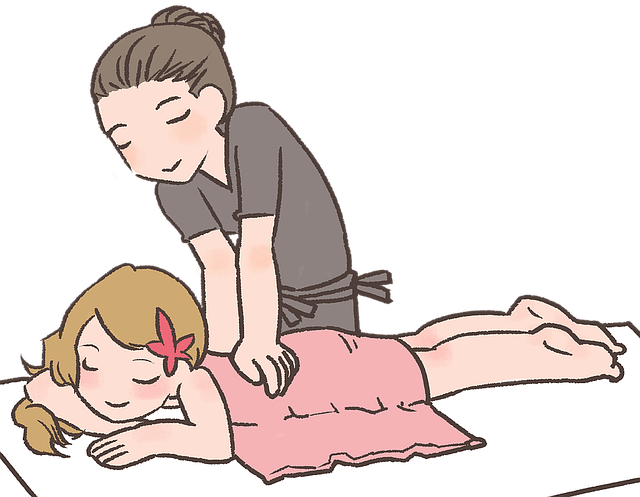Fitness and health coaching offers a proactive approach to combat modern-day chronic stress, which depletes energy levels by activating the fight-or-flight response. Techniques like mindfulness meditation and regular physical activity taught by coaches help regulate hormone levels, improve mood, and restore energy. Physical activity releases endorphins, combating negative effects of stress hormones like cortisol. Personalized workout plans tailored to individual needs, health conditions, preferences, and time constraints ensure enjoyable and challenging sessions that boost mental resilience and daily energy. Coaches identify unique triggers for energy levels through comprehensive assessments and craft tailored plans for managing stress, optimizing performance, and enhancing overall well-being. Implementing a personalized plan, divided into manageable tasks with realistic goals, using tracking tools like journals or apps, allows adjustments to ensure effective stress management and high energy throughout the day.
Stressed out and low on energy? It’s time to take control with tailored strategies for managing stress and regaining vitality. This comprehensive guide, designed by fitness and health coaches, delves into the science behind stress and its impact on energy levels. We explore effective fitness routines proven to reduce stress while offering personalized energy-boosting techniques. Learn how to create a customized plan, implement it, and track your progress towards a calmer, more energetic you.
- Understanding Stress and Its Impact on Energy Levels
- The Role of Fitness in Stress Management
- Creating Personalized Energy-Boosting Strategies
- Implementing and Tracking Your Tailored Plan
Understanding Stress and Its Impact on Energy Levels

Stress is a natural response to various demands placed on our bodies, but chronic stress can significantly impact our energy levels. When we perceive a threat or experience stressful situations, our body triggers the fight-or-flight response, releasing hormones like cortisol and adrenaline. While these hormones provide a quick boost of energy, prolonged activation can lead to exhaustion. This is particularly relevant in today’s fast-paced world where many individuals juggle demanding careers, busy schedules, and personal commitments. As a result, their bodies remain in a constant state of stress, depleting vital energy reserves.
Fitness and health coaching emphasizes the importance of managing stress as a proactive approach to enhancing overall well-being. Coaches often work with clients to identify sources of stress and develop personalized strategies to mitigate its effects. This may include incorporating relaxation techniques like mindfulness meditation or deep breathing exercises into daily routines. Additionally, regular physical activity is a powerful tool in combating stress-related fatigue. Engaging in moderate-intensity workouts, such as brisk walking or cycling, can help regulate hormone levels, improve mood, and restore energy.
The Role of Fitness in Stress Management

Regular physical activity is a powerful tool in managing stress levels, an aspect often overlooked in discussions about wellness. Fitness and health coaching emphasize that incorporating structured exercise into your routine can significantly reduce stress and boost energy. When we engage in physical activity, our bodies release endorphins, commonly known as ‘feel-good’ hormones, which act as natural painkillers and mood elevators. This process helps to combat the negative effects of stress hormones like cortisol, thereby promoting a sense of calm and relaxation.
Moreover, fitness coaching encourages individuals to focus on tailored exercises that cater to their unique needs. Whether it’s yoga for flexibility and mindfulness or high-intensity interval training (HIIT) for quick energy boosts, personalized workout plans can effectively manage stress. Such plans consider individual health conditions, preferences, and time constraints, ensuring that each session is both challenging and enjoyable, ultimately leading to improved mental resilience and sustained energy throughout the day.
Creating Personalized Energy-Boosting Strategies

Creating personalized energy-boosting strategies is a key role played by fitness and health coaches. They understand that every individual has unique needs, triggers, and activities that energize them. Through detailed assessments, coaches help clients identify patterns in their routines and behaviors that either drain or enhance their energy levels.
By combining this knowledge with expertise in exercise prescription, nutrition guidance, and mental well-being practices, these professionals craft tailored plans. These strategies not only manage stress but also optimize physical and mental performance. The result is a personalized roadmap to increased energy, improved focus, and enhanced overall well-being.
Implementing and Tracking Your Tailored Plan

Implementing your tailored stress management and energy boosting plan is the first step towards transforming your overall fitness and health. Start by breaking down your strategy into manageable tasks and setting realistic, achievable goals. Incorporate activities that align with your unique preferences and schedule; whether it’s morning meditation, a mid-day walk, or a relaxing night routine, make time for them.
Regularly track your progress to stay accountable. Keep a journal or use fitness and health coaching apps to log your daily habits, moods, and energy levels. This practice will help you identify what works best for your body and mind, allowing you to adjust and refine your plan as needed. By consistently evaluating your efforts, you can ensure that your tailored approach remains effective in managing stress and sustaining high energy throughout your day.
By understanding the intricate link between stress, energy levels, and fitness, individuals can now empower themselves with tailored strategies. Through a combination of personalized plans, regular tracking, and professional guidance from fitness and health coaches, managing stress effectively becomes achievable. This article equips readers with practical tools to boost their energy, enhance overall well-being, and lead more balanced lives.
